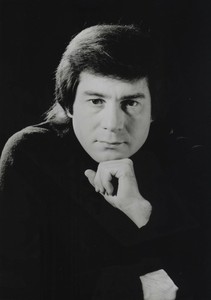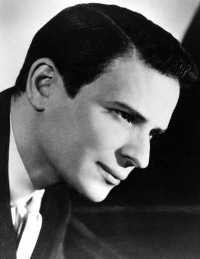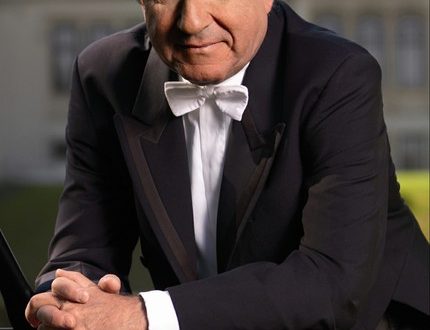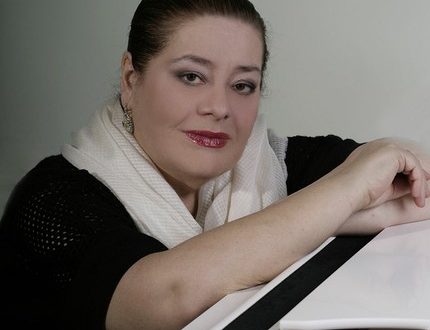
Dmitry Konstantinovich Alekseev |
Dmitri Alexeev

Let’s start with a brief excursus offered in one essay about Alekseev: “… Back in his student days, Dmitry happened to “accidentally” win the jazz improvisation competition. In general, then he was taken seriously only as a jazz pianist. Later, already in the early years of the conservatory, he began to play the music of the XNUMXth century more often, Prokofiev – they began to say that Alekseev was most successful in the modern repertoire. Those who have not heard the musician since then must now be very surprised. Indeed, today many recognize in him, first of all, a Chopinist, or, more broadly, an interpreter of romantic music. All this is evidence not of stylistic changes on his performing path, but of stylistic accumulation and growth: “I want to penetrate every style as deeply as I can.”
On the posters of this pianist you can see the names of various authors. However, no matter what he plays, any work gets a richly expressive coloring under his hands. According to the apt remark of one of the critics, in Alekseev’s interpretations there is almost always a “correction for the 1976th century.” However, he enthusiastically plays the music of modern composers, where such a “correction” is not required. Perhaps, S. Prokofiev attracts special attention in this area. Back in XNUMX, his teacher D. A. Bashkirov drew attention to the performer’s original approach to interpreting certain compositions: “When he plays to the fullest of his abilities, the clarity of his interpretations and artistic intentions is clearly visible. Often these intentions do not coincide with what we are used to. It’s also very encouraging.”
Alekseev’s temperamental game, for all its brightness and scope, was not free from contradictions for a long time. Evaluating his performance at the Tchaikovsky Competition in 1974 (fifth prize), E. V. Malinin pointed out: “This is an excellent pianist, in whose game the “intensity” of performance, the sharpness of details, technical filigree, all this is on his the highest level, and it is interesting to listen to him, but sometimes the richness of his performing manner is simply tiring. It does not give the listener the opportunity to “take a breath”, as if to “look around”… One can wish a talented pianist to “liberate” himself somewhat from his intention and “breathe” more freely. Paradoxical as it may seem, I think that it is precisely these “breathes” that will help make his playing more artistically expressive and holistic.”
By the time of his performance at the Tchaikovsky Competition, Alekseev had already graduated from the Moscow Conservatory in the class of D. A. Bashkirov (1970) and had also completed an assistant-internship course (1970-1973). In addition, he has already been a laureate twice: the second prize at the Paris competition named after Marguerite Long (1969) and the highest award in Bucharest (1970). Characteristically, in the Romanian capital, the young Soviet pianist also won a special prize for the best performance of a piece by the contemporary Romanian composer R. Georgescu. Finally, in 1975, Alekseev’s competitive path was crowned with a convincing victory in Leeds.
Since then, the pianist has been conducting a very intensive concert activity in our country, and successfully performs abroad. His repertoire, which is based on the works of the romantics of the last century, including the Sonata in B minor and etudes by Liszt, and various pieces by Chopin, has also significantly expanded. “Symphonic Etudes” and “Carnival” by Schumann, as well as Russian classical music. “What, first of all, captivates in the performing manner of Dmitry Alekseev? – M. Serebrovsky writes on the pages of the Musical Life magazine. – Sincere artistic passion and the ability to captivate the listener with his playing. At the same time, his playing is marked by outstanding pianistic skills. Alekseev freely disposes of his magnificent technical resources… Alekseev’s talent is most fully revealed in the works of the romantic plan.”
Indeed, the thought of calling his play prudently rationalistic never arises.
But “with all the freedom of the birth of sound, writes G. Sherikhova in the mentioned essay, here elasticity and measure are palpable – a measure of dynamic, accent and timbre ratios, a measure of touching a key, verified by subtle knowledge and taste. However, this conscious or unconscious “calculation” goes far into the depths… This measure is “invisible” also due to the special plasticity of pianism. Any line, an echo of texture, the entire musical fabric is plastic. That is why the transitions from state to state, crescendo and diminuendo, acceleration and deceleration of the tempo are so convincing. In the game of Alekseev we will not find sentimentality, romantic break, refined mannerism. His pianism is uncomplicatedly honest. The feeling is not enclosed by the performer in a “frame” that pleases him. He sees the image from the inside, shows us its deep beauty. That is why in Alekseevsky’s interpretations of Chopin there is not a hint of salonism, Prokofiev’s Sixth does not crush the space with diabolical harmonies, and Brahms’ intermezzo conceal such unspoken sadness … “
In recent years, Dmitry Alekseev lives in London, teaches at the Royal College of Music, performs in Europe, the USA, Japan, Australia, Hong Kong, South Africa; collaborates with the best orchestras in the world – the Chicago Symphony, the London, Israel, Berlin Radio, the Orchestra of Romanesque Switzerland. More than once performed in Russia and abroad with the orchestras of the St. Petersburg Philharmonic. The artist’s discography includes piano concertos by Schumann, Grieg, Rachmaninov, Prokofiev, Shostakovich, Scriabin, as well as solo piano works by Brahms, Schumann, Chopin, Liszt, Prokofiev. A disc with a recording of Negro spirituals performed by the American singer Barbra Hendrix and Dmitry Alekseev is very popular.
Grigoriev L., Platek Ya.





